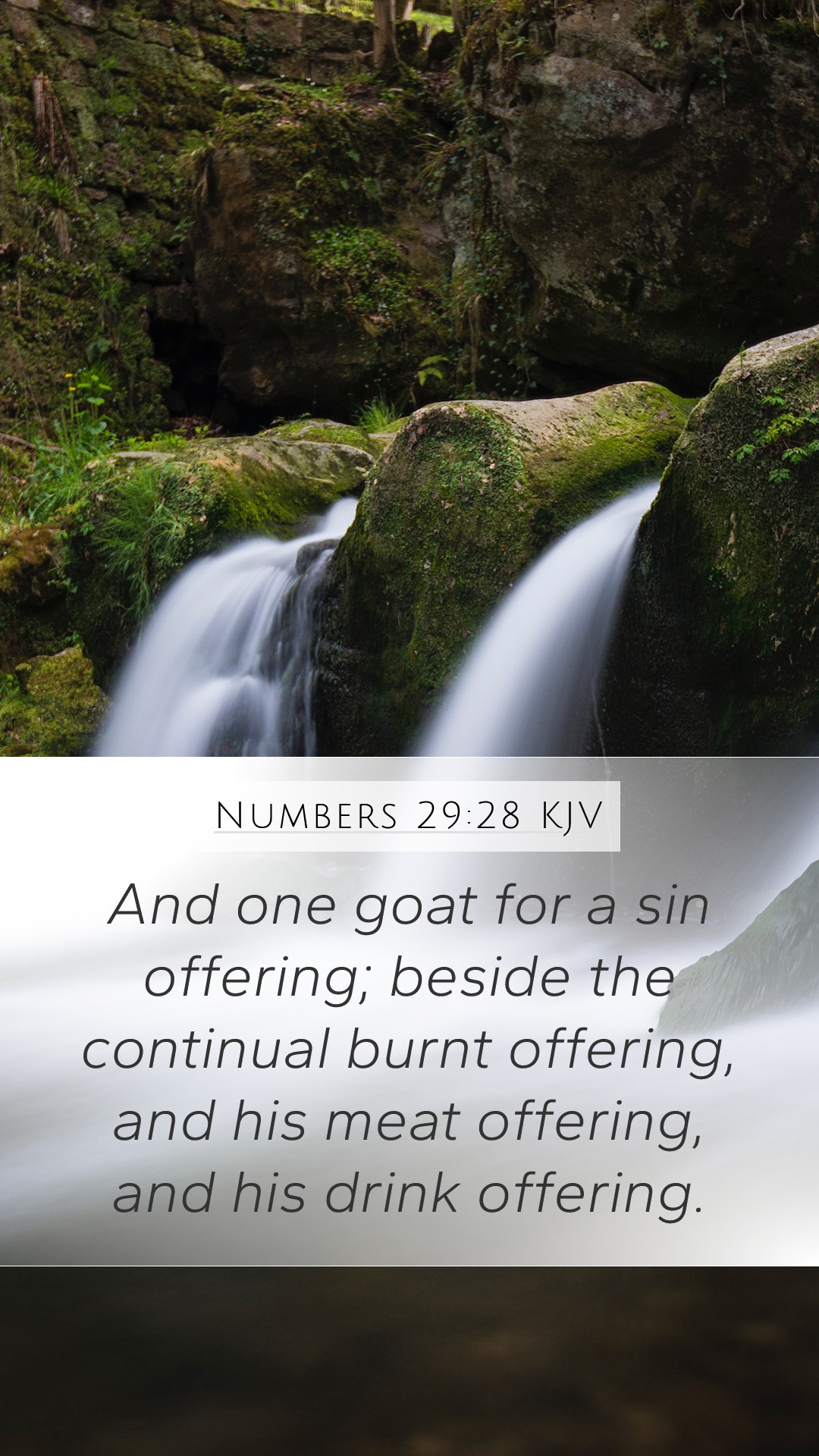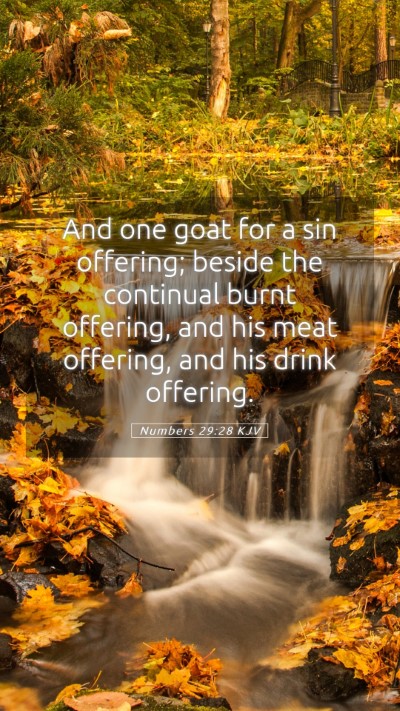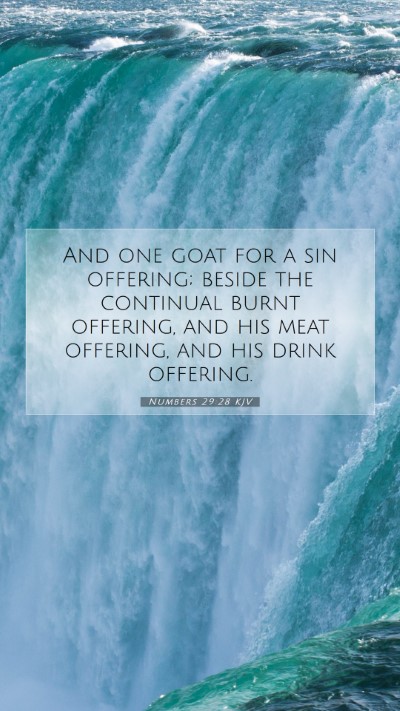Bible Verse Meaning of Numbers 29:28
Verse Text: "And one goat for a sin offering, to make an atonement for you." - Numbers 29:28
Overview and Context
The Book of Numbers records the journey of the Israelites as they wander in the wilderness and the established laws and regulations concerning various aspects of their community life, including sacrificial offerings. Numbers 29 details the offerings to be made during the Feast of Tabernacles, highlighting the significance of sacrifices in maintaining the covenant relationship with God.
Interpretation Insights
- Matthew Henry's Commentary: Henry describes the goat offered as a sin offering as a vital component of the sacrificial system, emphasizing its role in atoning for the transgressions of the Israelites. He underscores the necessity of such offerings for reconciliation with God, reflecting the seriousness of sin and the need for redemptive measures through sacrifices.
- Albert Barnes' Notes: Barnes elaborates on the offerings, noting that the sin offering serves not only as an act of worship but also as a reminder of the people's need for atonement. He points out that this offering was made for the collective sins of the community, reinforcing the idea of collective responsibility in the context of faith and obedience to God.
- Adam Clarke's Commentary: Clarke indicates that the goat symbolizes the collective sin of the community and the need for purification. He delves into the symbolism of sacrifices and their implication of taking upon oneself the guilt of the community, highlighting the foreshadow of ultimate sacrifice in Christ.
Theological Significance
This verse embodies essential themes of atonement, redemption, and community guilt. The act of presenting a goat for sin signifies an acknowledgment of wrongdoing and a desire for reconciliation and purification. It represents the larger narrative of Scripture where atonement is central, culminating in the New Testament with Christ's sacrifice.
Applications in Modern Faith
For today’s believers, Numbers 29:28 serves as a reminder of the continuous need for repentance and reconciliation with God. The sacrificial system points toward the ultimate sacrifice made by Jesus Christ, providing a pathway for individual and communal restoration.
Historical Context
Understanding this verse requires insight into the cultural practices of ancient Israel and their sacrificial system, which was designed for worship and atonement. The feast observances, as prescribed in this chapter, showcase the importance of remembering God’s provision while also addressing the need for holiness among His people.
Connection to Other Scripture
This verse relates to several key passages that also discuss atonement and sacrifice:
- Leviticus 4:24: Discusses the sin offering in great detail.
- Hebrews 9:22: Addresses the necessity of blood in achieving redemption.
- 1 Peter 2:24: Correlates Christ's sacrifice with the purpose of sin offering.
Exploring Bible Study Resources
To deepen your understanding of Bible verses like Numbers 29:28, consider utilizing various Bible study resources:
- Bible study guides that provide insight into the historical context.
- Bible study tools, such as concordances to explore related passages.
- Participating in Bible study groups to discuss interpretations and applications.
- Engaging with online Bible study platforms for diverse theological perspectives.
Final Thoughts
Numbers 29:28 not only holds significance for the Israelites of the Old Testament but also delivers profound insights for Christians today. By engaging in Biblical exegesis of this verse, believers can uncover a deeper understanding of God’s holiness and the necessity of atonement, as demonstrated through Scripture.
Related Topics for Further Study
- Understanding difficult Bible passages
- In-depth Bible verse analysis
- Applying Bible verses to daily life


